Islamic State crisis: UN aims to stop jihadist recruits
- Published
Barack Obama: IS "must be degraded and then ultimately destroyed"
The UN Security Council has adopted a binding resolution, external compelling states to prevent their nationals joining jihadists in Iraq and Syria.
US President Barack Obama chaired the session and said nations must prevent the recruitment and financing of foreign fighters.
Meanwhile US and Arab jets bombed Islamic State (IS) targets in Syria for a third night, the US said.
Mr Obama urged global efforts to dismantle the IS "network of death".
The US-drafted resolution was adopted unanimously. It requires signatories to "prevent and suppress recruiting, organising, transporting, and equipping" of foreign fighters.
The latest air strikes targeted small-scale oil refineries controlled by IS, and which generate as much as $2m a day in revenue, the US military said late on Wednesday.
It said an initial assessment showed they had been successful.
The US launched air raids against IS militants in Iraq last month and on Monday expanded the strikes into Syria, with the participation of Gulf Arab allies.
Call to action
Speaking at the UN, British Prime Minister David Cameron said the UK was ready to "play its part" in fighting Islamic State, which he called an "evil against which the whole world must unite".
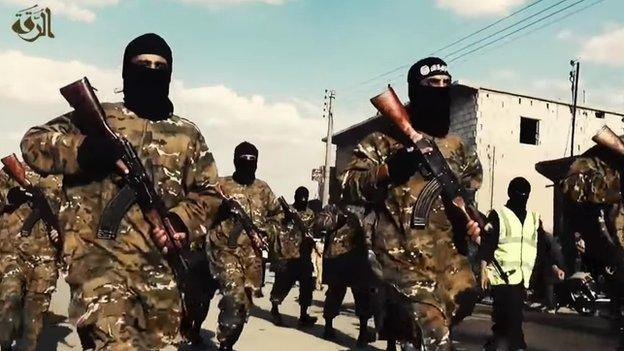
A new IS video purportedly shows new recruits

Note: figures do not take into account for those who may have left the region or died during fighting
He told the UN council session that the Iraq and Syria conflicts were attracting young recruits from prosperous countries.
The UK Parliament will be recalled on Friday to discuss Britain's possible role in air strikes on IS targets.
Mr Obama said "the words spoken here today must be matched and translated into action... within nations and between them, not just in the days ahead but for years to come".
In his earlier speech, external to the UN General Assembly he condemned IS, saying "there can be no reasoning - no negotiation - with this brand of evil".
More than 40 countries had offered to join the anti-IS coalition, he said.
IS aims to set up a hardline caliphate. The well-armed Sunni Muslim militants have seized a huge swathe of Syria and Iraq, forcing whole communities to flee in terror. They have beheaded Western hostages and have persecuted Christians, Yazidis and Shia Muslims, whom they treat as heretics.
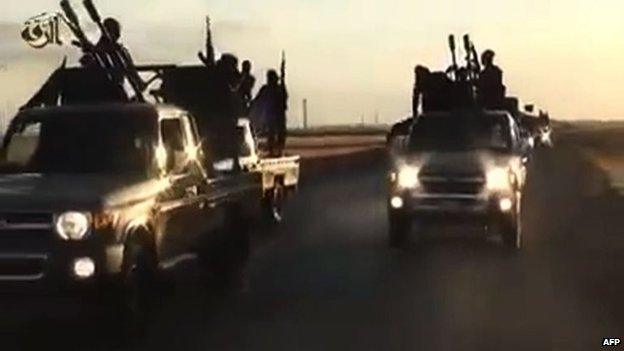
IS fighters have seized large areas in Iraq and Syria and declared a caliphate
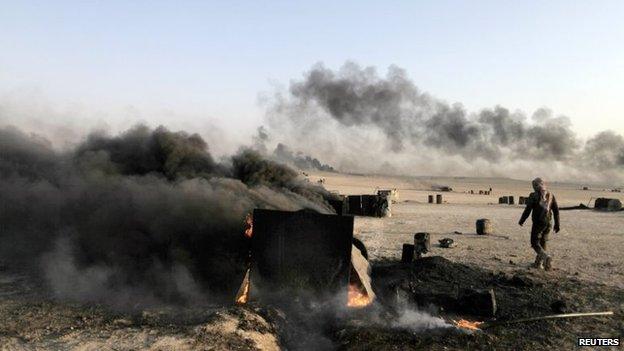
Oilfields in northern Syria used to be a major source of income for the government
Meanwhile, more than 120 Islamic scholars signed an open letter, external to IS, condemning its ideology.
Muzammil Siddiqi, one of signatories and chairman of the Fiqh Council of North America, which interprets Islamic religious law, said: "It is forbidden in Islam to kill the innocent."
"It is forbidden in Islam to kill emissaries, ambassadors and diplomats. Hence, it is forbidden to kill the journalists and aid workers."
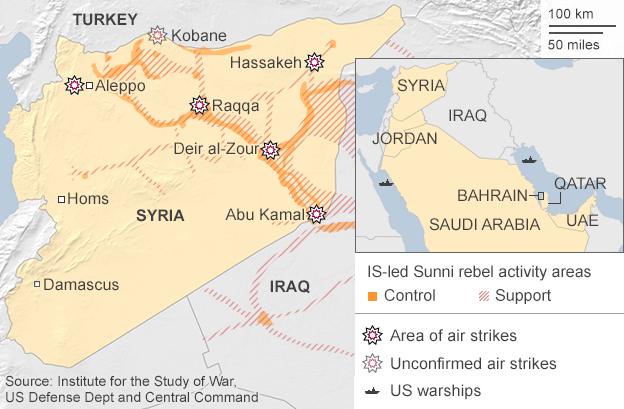
At the UN, Turkish President Recep Tayyip Erdogan accused the international community of not doing enough to help his country stem the flow of foreign fighters into Syria.
He told the Security Council said the fighters' home countries should co-operate better with Turkey to stop them getting through.
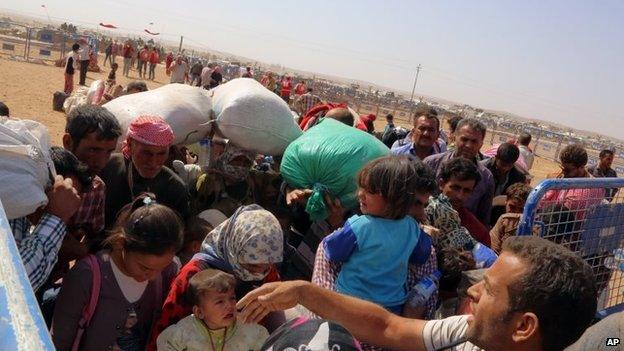
The advance of IS militants has forced whole communities to flee
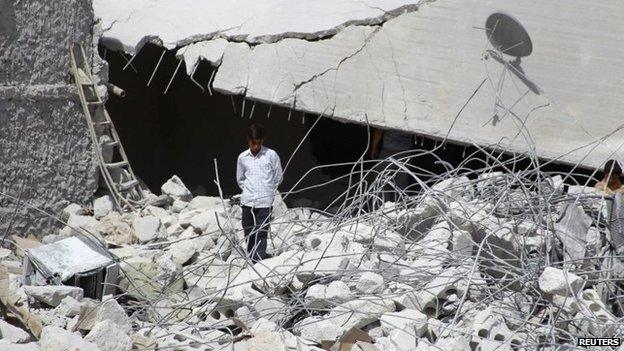
Buildings in Raqqa were damaged by the US-led air strikes in Syria
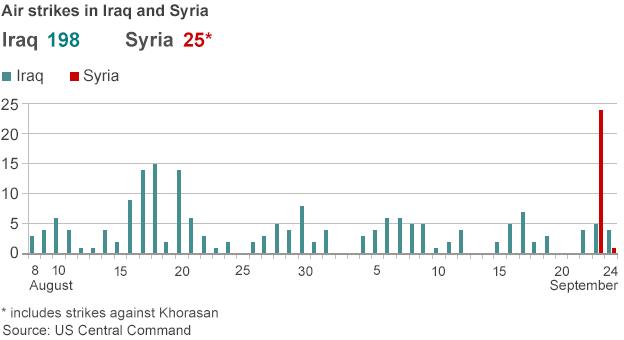
The IS advance has created a refugee crisis in Turkey. Aid agencies said some 130,000 Kurdish refugees, most of them from Kobane, crossed into Turkey at the weekend.
The US has launched nearly 200 air strikes against IS in Iraq since August.
The US said Saudi Arabia, the United Arab Emirates, Jordan, Bahrain and Qatar had all "participated in or supported" the strikes on IS in Syria this week.
The strikes on Tuesday also targeted Khorasan, a shadowy group of al-Qaeda fighters in Syria's Aleppo province. The US military says it is investigating whether the attack killed Khorasan's leader Mohsin al-Fadhli.
The Dutch government says it will deploy six F-16 fighter jets to join the US-led air campaign. The Netherlands will also send about 130 military trainers to Iraq.

Formed out of al-Qaeda in Iraq (AQI) in 2013, IS first captured Raqqa in eastern Syria
It captured broad swathes of Iraq in June, including Mosul, and declared a "caliphate" in areas it controls in Syria and Iraq
Pursuing an extreme form of Sunni Islam, IS has persecuted non-Muslims such as Yazidis and Christians, as well as Shia Muslims, whom it regards as heretics
Known for its brutal tactics, including beheadings of soldiers, Western journalists and aid workers
The CIA says the group could have as many as 31,000 fighters in Iraq and Syria
The US has been launching air strikes on IS targets in north-eastern Iraq since mid-August

Have you been affected by the issues raised in this story? You can email haveyoursay@bbc.co.uk, external